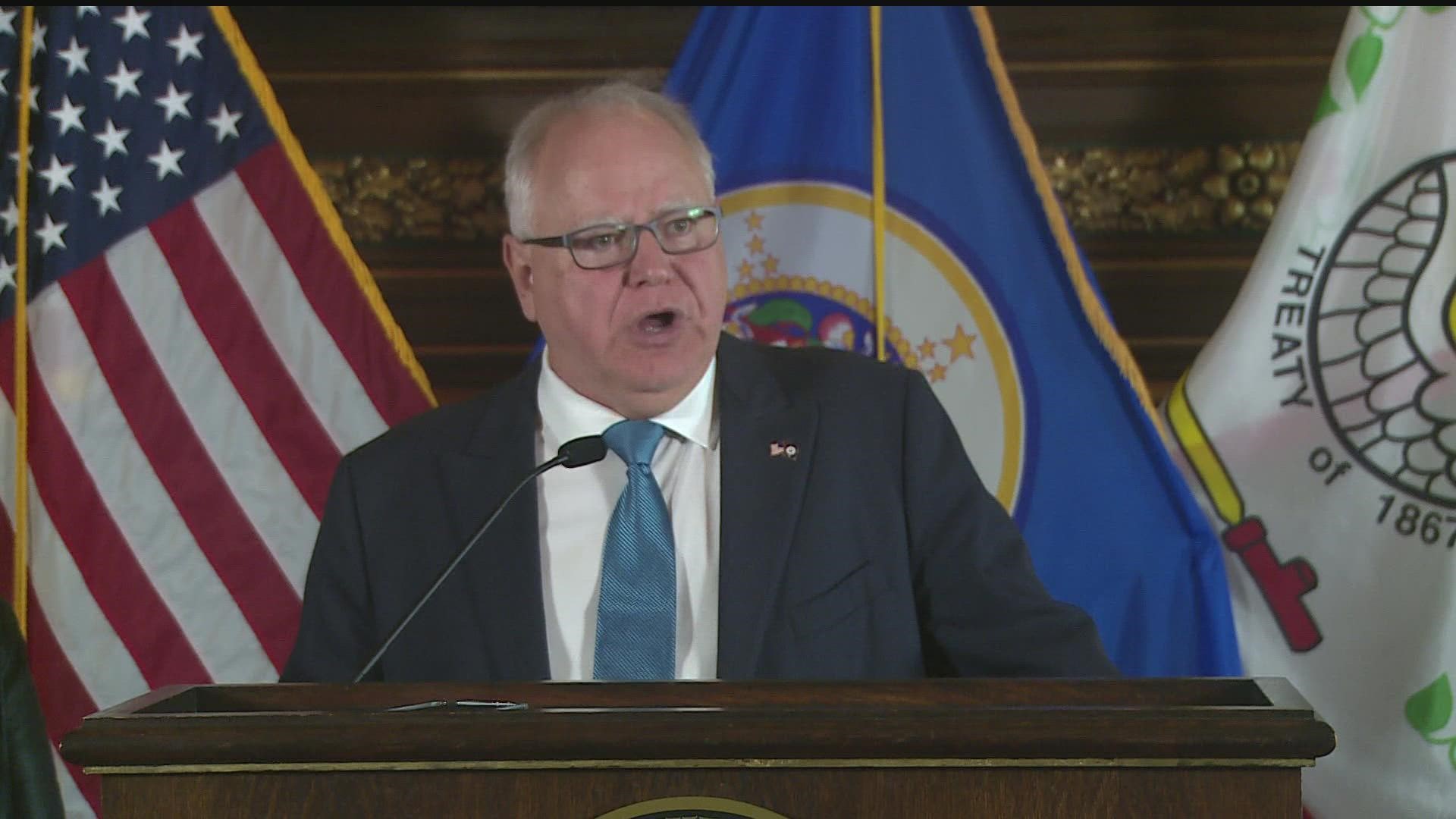ST PAUL, Minn. — For the first time in nine years Democrats will control both chambers of the Minnesota Legislature in 2023 and 2024.
In the face of predictions of a "red wave," the DFL party kept its six-seat majority in the Minnesota House for another two years. And in a surprise to most, the Democrats grabbed a very slim majority in the Senate, which had been controlled by Republicans since 2015.
"I am so happy. I am tired. But this is a good day and my colleagues and I are celebrating with our DFL Caucus for a Minnesota Senate miracle!" Senate Minority Leader Melisa Lopez Franzen told reporters at a State Capitol Press Conference.
It wasn't until the wee hours of the morning Wednesday that Franzen knew her caucus had captured 34 seats, giving them a one-seat majority in the Senate and control of committees and the budget that can be considered.
Single-party control opens up all kinds of possibilities for the 2023 session, especially with a projected $9 billion surplus still in the coffers.
"I want to make sure that people all around the state know that this is your legislature. This is your house, your senate, your governor, and we will listen to you. We will do the work, and it starts right now."
RELATED: Gov. Walz wins reelection bid
Franzen herself won't be there in January. When the maps were redrawn during redistricting, she found herself doubled up in the same district with Sen. Ron Latz, a fellow Democrat who's been in the legislature 10 years longer. She decided to retire after this term rather than challenge Latz in the primary.
"I’m not going to be part of this caucus as of tomorrow, but I’m going to be rooting for my team."
Sen. Erin Murphy of St. Paul, who chaired the Senate DFL re-election campaign and is a leading candidate to become Senate Majority Leader, said the caucus will meet later this week to sort out their legislative priorities for 2023.
"The voters chose a unified government, and we heard that choice, we earned that choice, and we’re going to respond by leading," Sen. Murphy told reporters.
"I believe our caucus is ready to put behind us the divisions, the fearmongering, and the stalemate that have become endemic in the legislature, and replace that with thoughtful, forward-thinking, strong policy and a budget that balances."
When pressed for specifics on that agenda Murphy acknowledged there's strong support in the state for legalizing recreational cannabis, and that many Democrats agree with Republicans that the state should no longer apply the personal income tax to Social Security benefits.
There were many bills that passed the DFL-controlled House in the past few years that weren't heard or debated in the GOP-controlled Senate. When asked for examples of some of those bills that might get hearings now, Sen. Lindsey Port of Burnsville named several off the top of her head.
"Price gouging, paid family leave, the PRO Act, legalizing marijuana, the ERA! There's a long list," Port explained.
PRO Act is short for Protect Reproductive Options Act, a bill that would write the right to abortions into state law. Currently, abortions are legal here only because of a 1995 decision by the Minnesota Supreme Court in the Doe v Gomez case.
Gov. Tim Walz, who won a second term Tuesday, said that Minnesotans are yearning to see lawmakers on all stripes work together to solve problems.
"First and foremost, Minnesotans want to make sure we’re working together to make sure everyone feels safe in their community," Walz explained, in a midday press conference in his office at the Capitol.
"They want a one Minnesota that invests in our children, that makes our community safe, that’s innovative around climate change, that makes sure we protect people’s rights to make their own health care decisions."
One of the governor's initiatives that fell by the wayside in 2022 was the idea of rebate checks to residents. It was written off as an election-year gimmick by Republicans who argued permanent income tax cuts would help Minnesotans more.
Walz said he still hasn't given up on the "Walz Checks" idea, but he also wants to let the newly minted legislative majorities bring forward their priorities.
"I do think it would ease burdens on inflation, the pressures folks are feeling on inflation. So, on this one, I think we’re definitely going to talk about it. I’ll definitely bring to the table."
Sen. Ann Rest of New Hope, who has served in the legislature since 1984, said she hopes Tuesday's election signals a change in the tone of politics.
"I think yesterday Americans across this country indicated they wanted a return to normalcy in the relationships between the two parties and not the extremes, but the normalcy of compromise, of proposals, of discussions, of debate."

